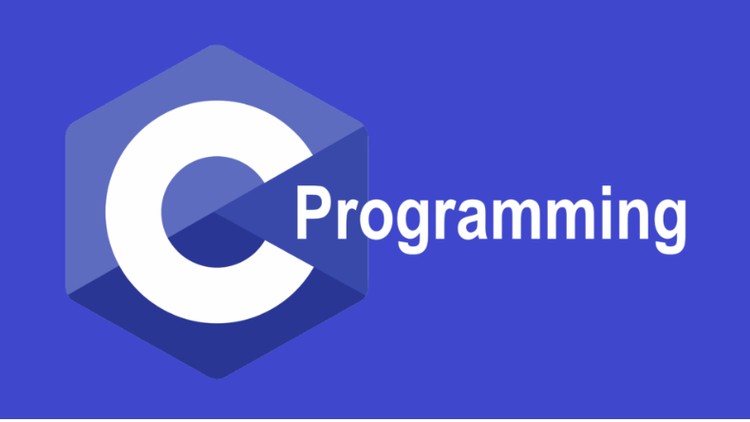(C programming Example for Beginners)
C Program to Multiply two Matrices by Passing Matrix to a Function
In this example, you’ll learn to multiply two matrices and display it using user defined function.
This program asks the user to enter the size of the matrix (rows and column).
Then, it asks the user to enter the elements of those matrices and finally adds and displays the result.
To perform this task three functions are made:
- To takes matrix elements from user
enterData() - To multiply two matrix
multiplyMatrices() - To display the resultant matrix after multiplication
display()
Example: Multiply Matrices by Passing it to a Function
#include <stdio.h>
void enterData(int firstMatrix[][10], int secondMatrix[][10], int rowFirst, int columnFirst, int rowSecond, int columnSecond);
void multiplyMatrices(int firstMatrix[][10], int secondMatrix[][10], int multResult[][10], int rowFirst, int columnFirst, int rowSecond, int columnSecond);
void display(int mult[][10], int rowFirst, int columnSecond);
int main(){
int firstMatrix[10][10], secondMatrix[10][10], mult[10][10], rowFirst, columnFirst, rowSecond, columnSecond, i, j, k;
printf("Enter rows and column for first matrix: ");
scanf("%d %d", &rowFirst, &columnFirst);
printf("Enter rows and column for second matrix: ");
scanf("%d %d", &rowSecond, &columnSecond);
// If colum of first matrix in not equal to row of second matrix, asking user to enter the size of matrix again.
while (columnFirst != rowSecond)
{
printf("Error! column of first matrix not equal to row of second.n");
printf("Enter rows and column for first matrix: ");
scanf("%d%d", &rowFirst, &columnFirst);
printf("Enter rows and column for second matrix: ");
scanf("%d%d", &rowSecond, &columnSecond);
}
// Function to take matrices data
enterData(firstMatrix, secondMatrix, rowFirst, columnFirst, rowSecond, columnSecond);
// Function to multiply two matrices.
multiplyMatrices(firstMatrix, secondMatrix, mult, rowFirst, columnFirst, rowSecond, columnSecond);
// Function to display resultant matrix after multiplication.
display(mult, rowFirst, columnSecond);
return 0;
}
void enterData(int firstMatrix[][10], int secondMatrix[][10], int rowFirst, int columnFirst, int rowSecond, int columnSecond){
int i, j;
printf("nEnter elements of matrix 1:n");
for(i = 0; i < rowFirst; ++i)
{
for(j = 0; j < columnFirst; ++j)
{
printf("Enter elements a%d%d: ", i + 1, j + 1);
scanf("%d", &firstMatrix[i][j]);
}
}
printf("nEnter elements of matrix 2:n");
for(i = 0; i < rowSecond; ++i)
{
for(j = 0; j < columnSecond; ++j)
{
printf("Enter elements b%d%d: ", i + 1, j + 1);
scanf("%d", &secondMatrix[i][j]);
}
}
}
void multiplyMatrices(int firstMatrix[][10], int secondMatrix[][10], int mult[][10], int rowFirst, int columnFirst, int rowSecond, int columnSecond){
int i, j, k;
// Initializing elements of matrix mult to 0.
for(i = 0; i < rowFirst; ++i)
{
for(j = 0; j < columnSecond; ++j)
{
mult[i][j] = 0;
}
}
// Multiplying matrix firstMatrix and secondMatrix and storing in array mult.
for(i = 0; i < rowFirst; ++i)
{
for(j = 0; j < columnSecond; ++j)
{
for(k=0; k<columnFirst; ++k)
{
mult[i][j] += firstMatrix[i][k] * secondMatrix[k][j];
}
}
}
}
void display(int mult[][10], int rowFirst, int columnSecond){
int i, j;
printf("nOutput Matrix:n");
for(i = 0; i < rowFirst; ++i)
{
for(j = 0; j < columnSecond; ++j)
{
printf("%d ", mult[i][j]);
if(j == columnSecond - 1)
printf("nn");
}
}
}
Output
Enter rows and column for first matrix: 3 2 Enter rows and column for second matrix: 3 2 Error! column of first matrix not equal to row of second. Enter rows and column for first matrix: 2 3 Enter rows and column for second matrix: 3 2 Enter elements of matrix 1: Enter elements a11: 3 Enter elements a12: -2 Enter elements a13: 5 Enter elements a21: 3 Enter elements a22: 0 Enter elements a23: 4 Enter elements of matrix 2: Enter elements b11: 2 Enter elements b12: 3 Enter elements b21: -9 Enter elements b22: 0 Enter elements b31: 0 Enter elements b32: 4 Output Matrix: 24 29 6 25
C Example for Beginners: C Program to Multiply two Matrices by Passing Matrix to a Function
Disclaimer: The information and code presented within this recipe/tutorial is only for educational and coaching purposes for beginners and developers. Anyone can practice and apply the recipe/tutorial presented here, but the reader is taking full responsibility for his/her actions. The author (content curator) of this recipe (code / program) has made every effort to ensure the accuracy of the information was correct at time of publication. The author (content curator) does not assume and hereby disclaims any liability to any party for any loss, damage, or disruption caused by errors or omissions, whether such errors or omissions result from accident, negligence, or any other cause. The information presented here could also be found in public knowledge domains.
